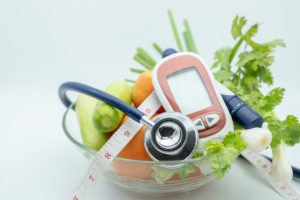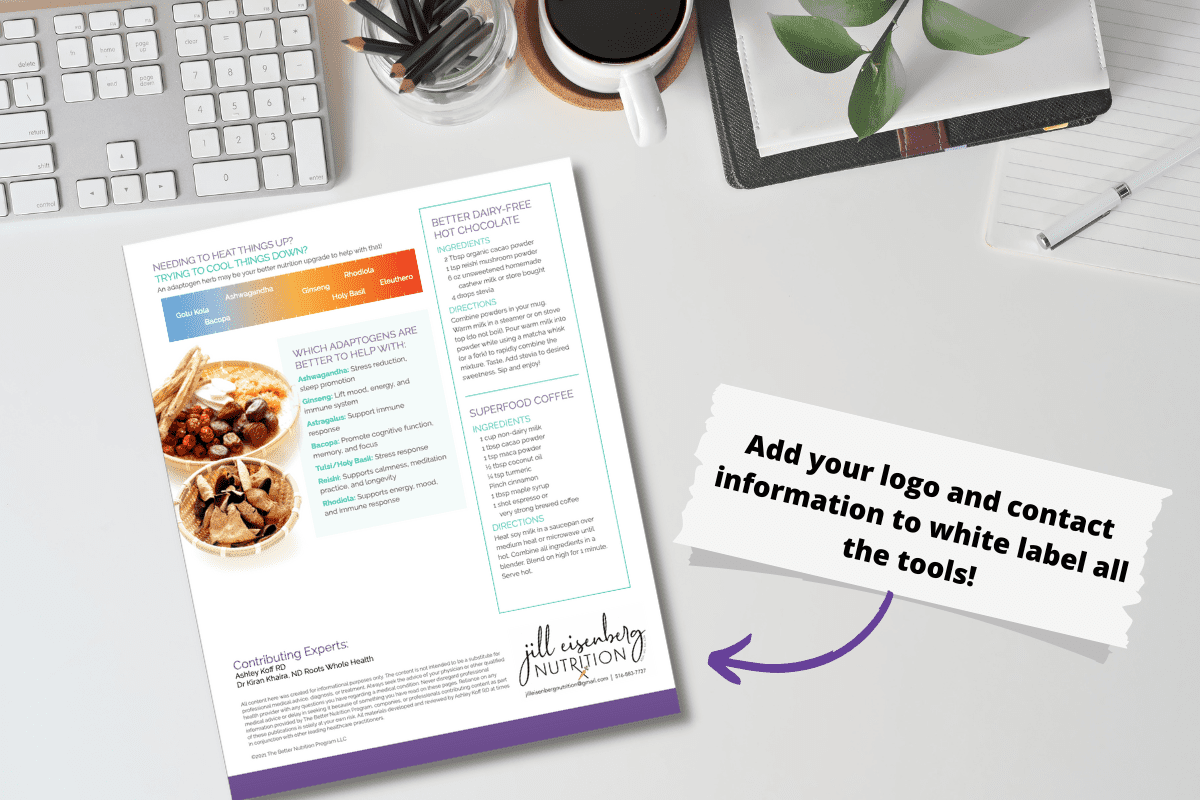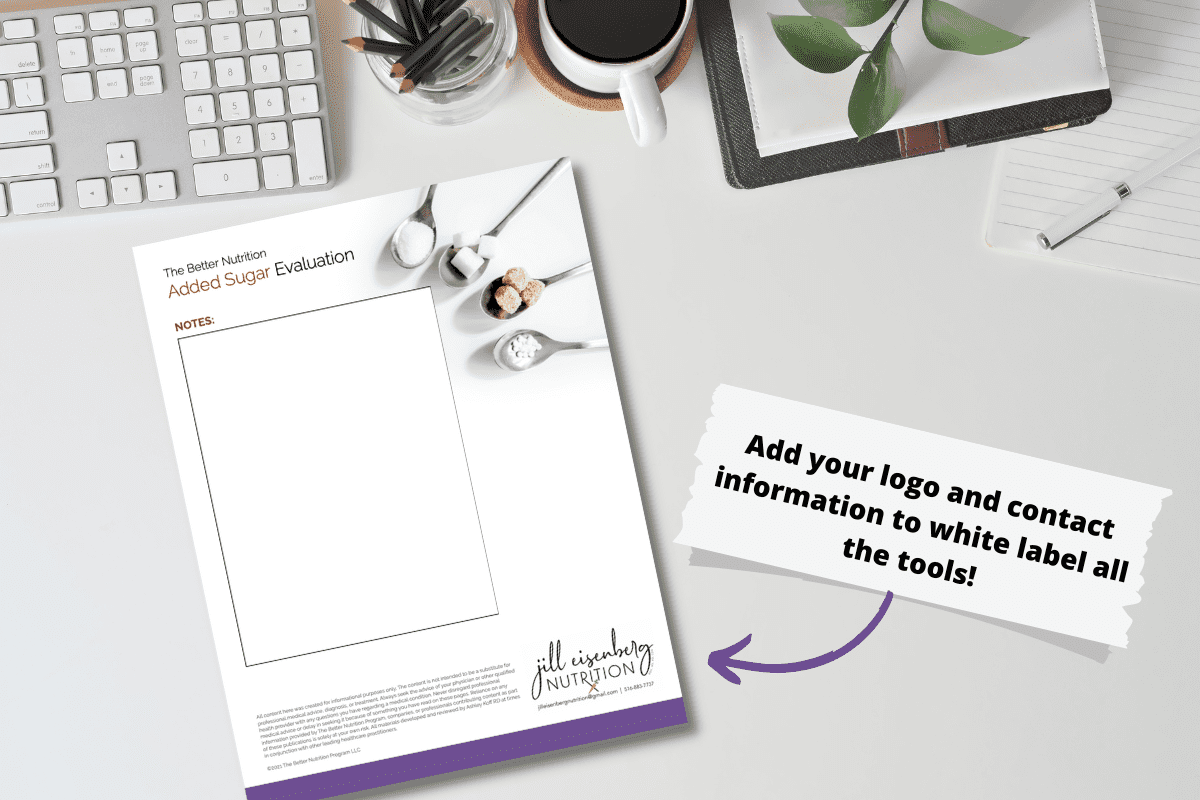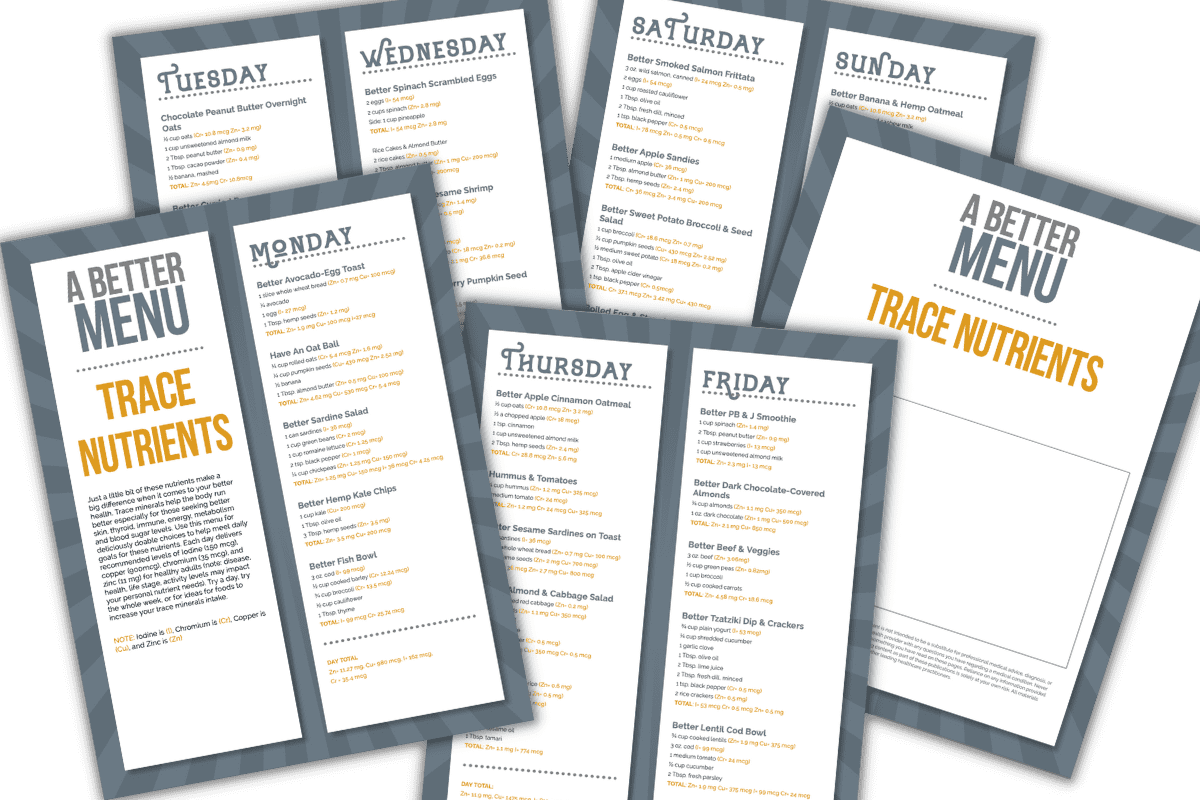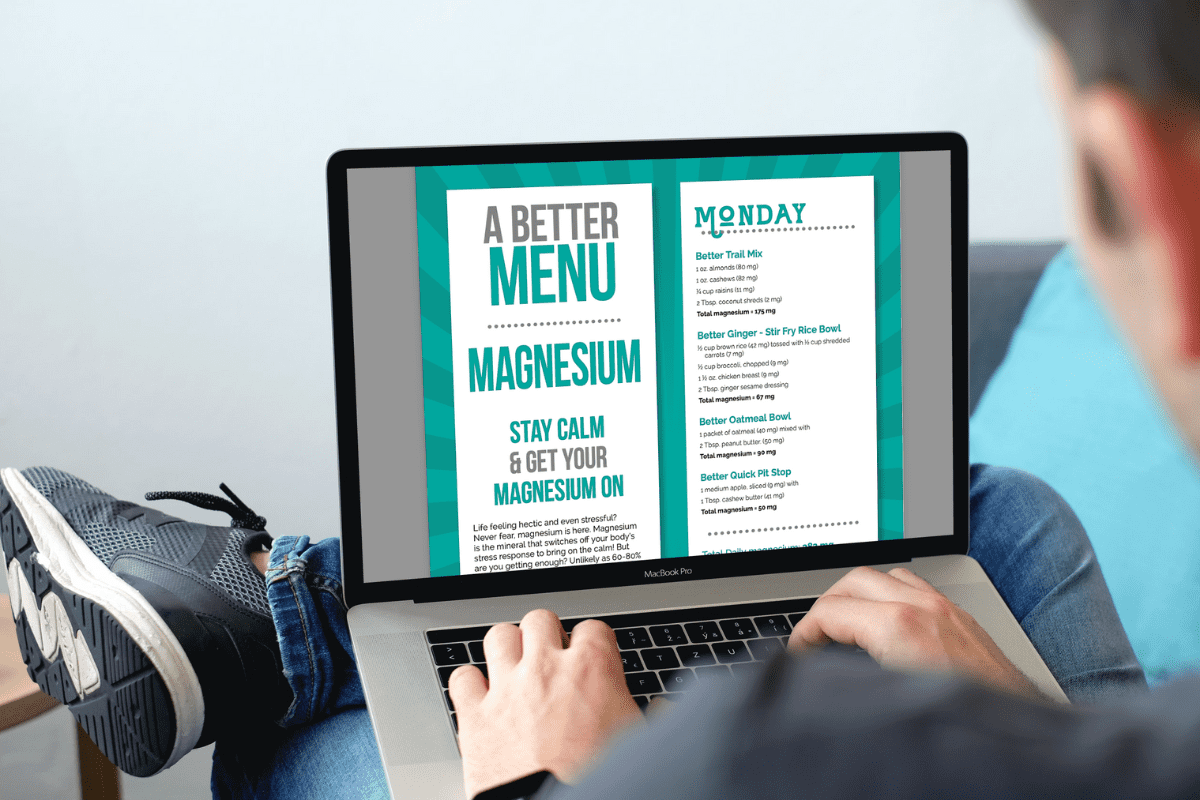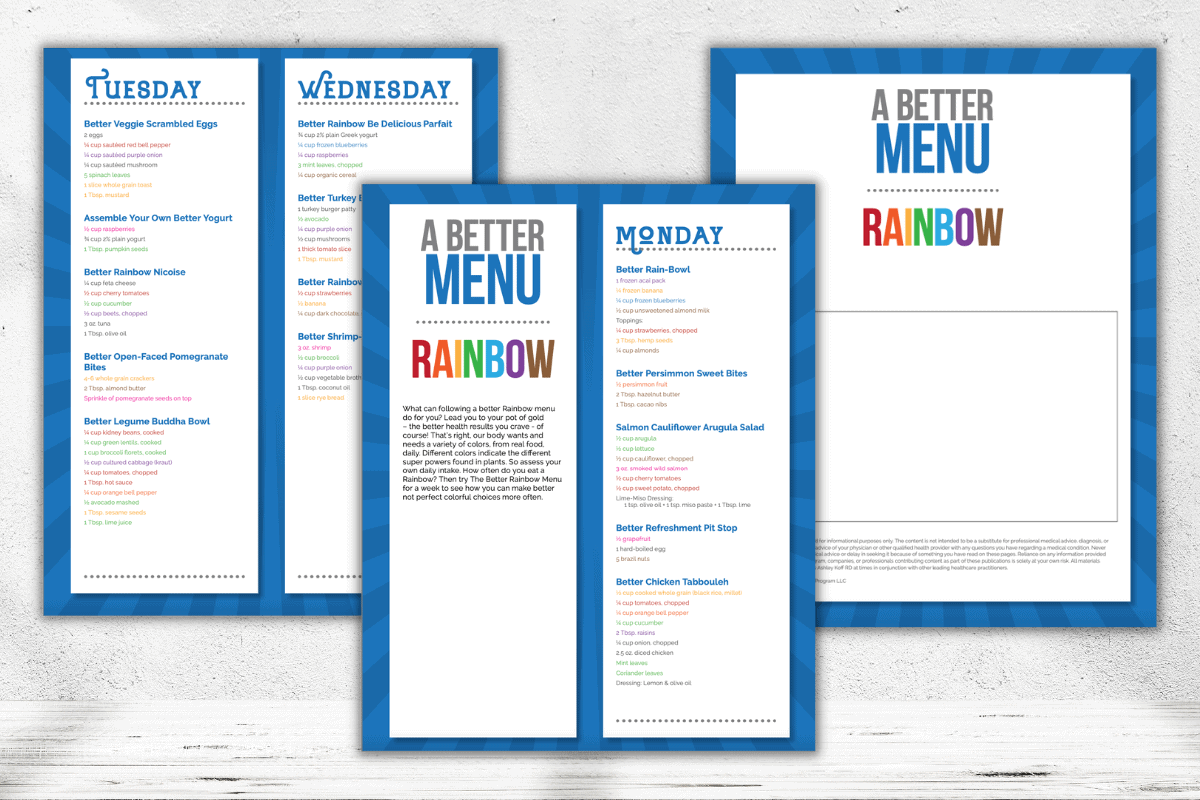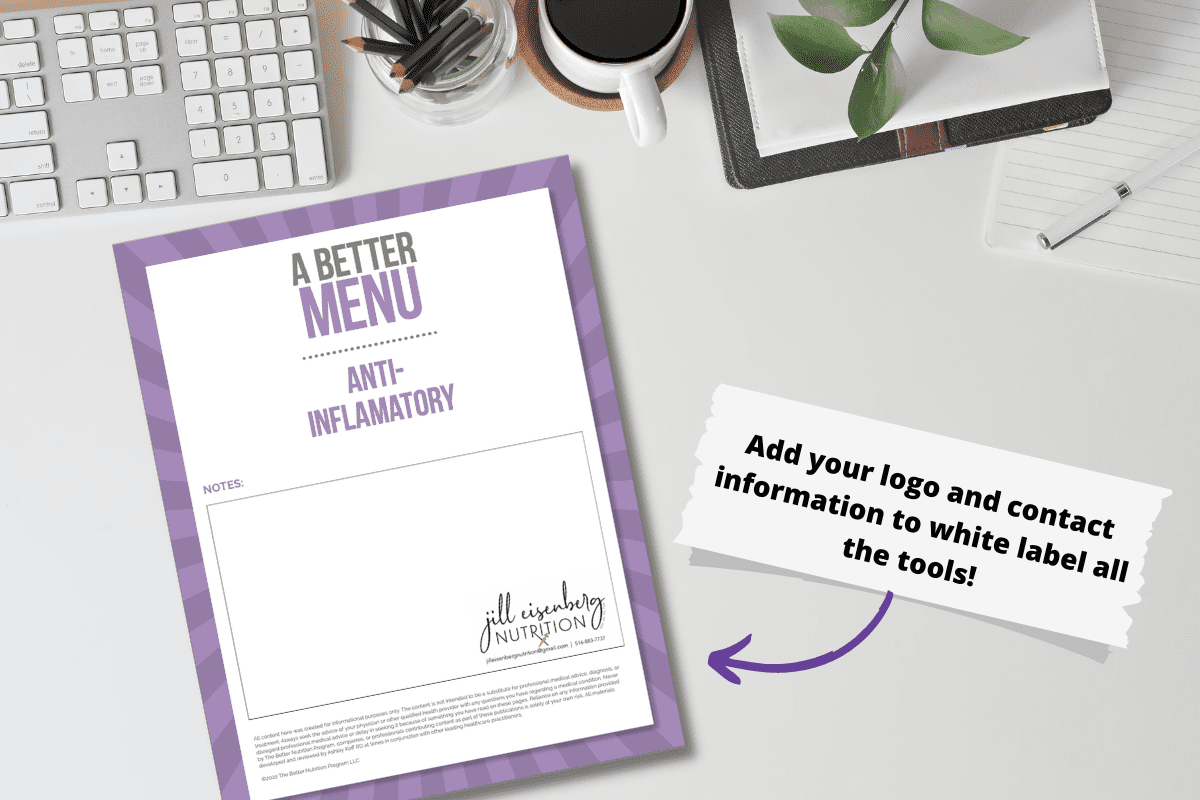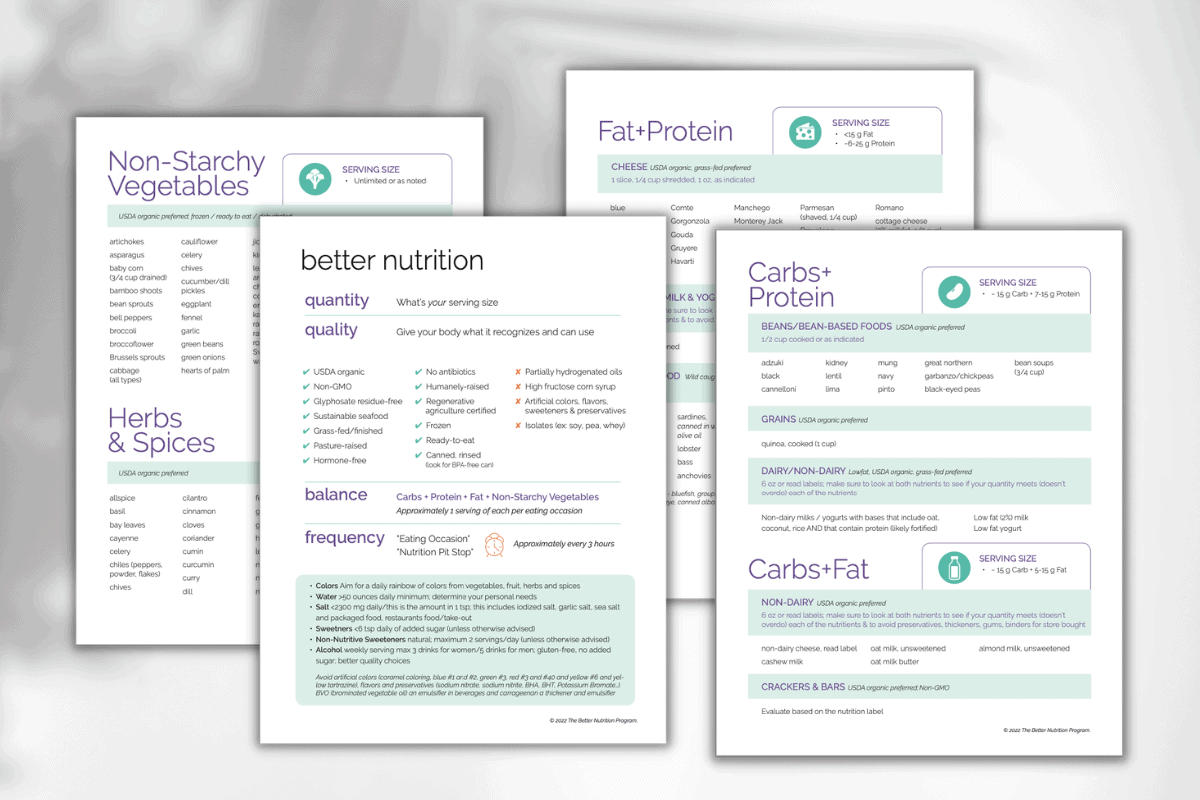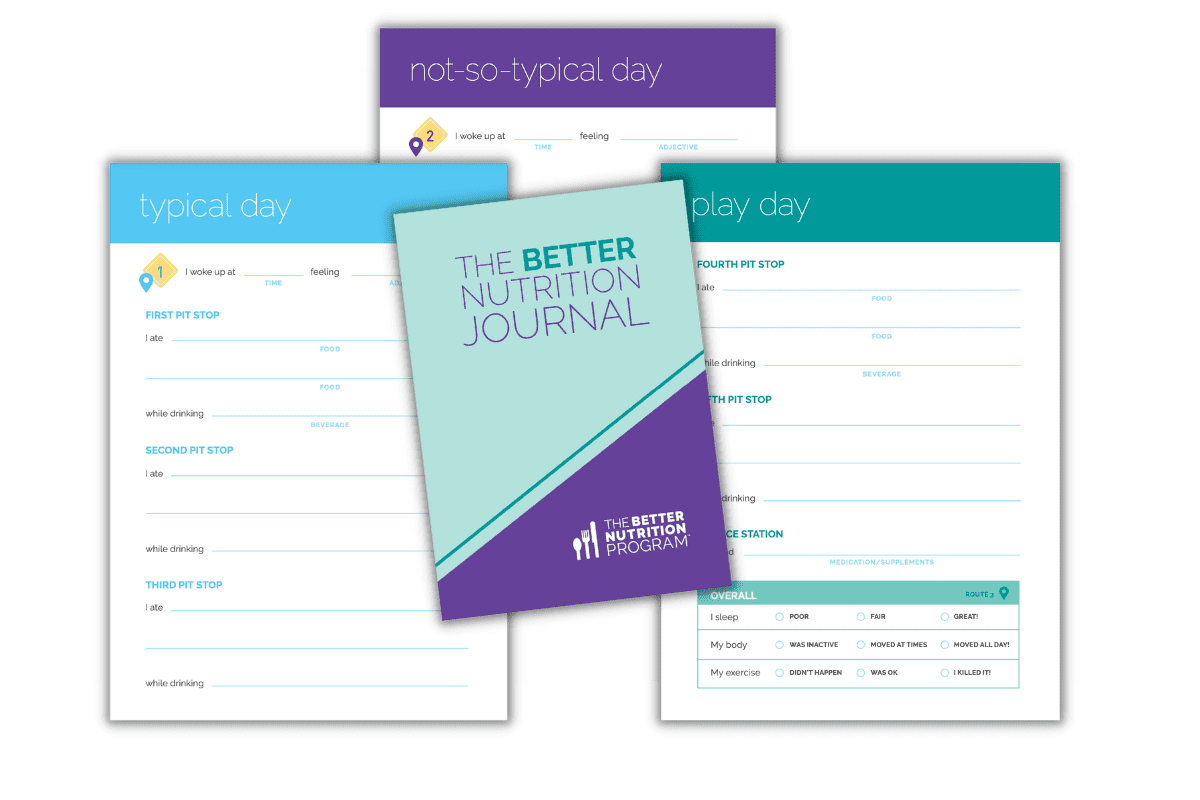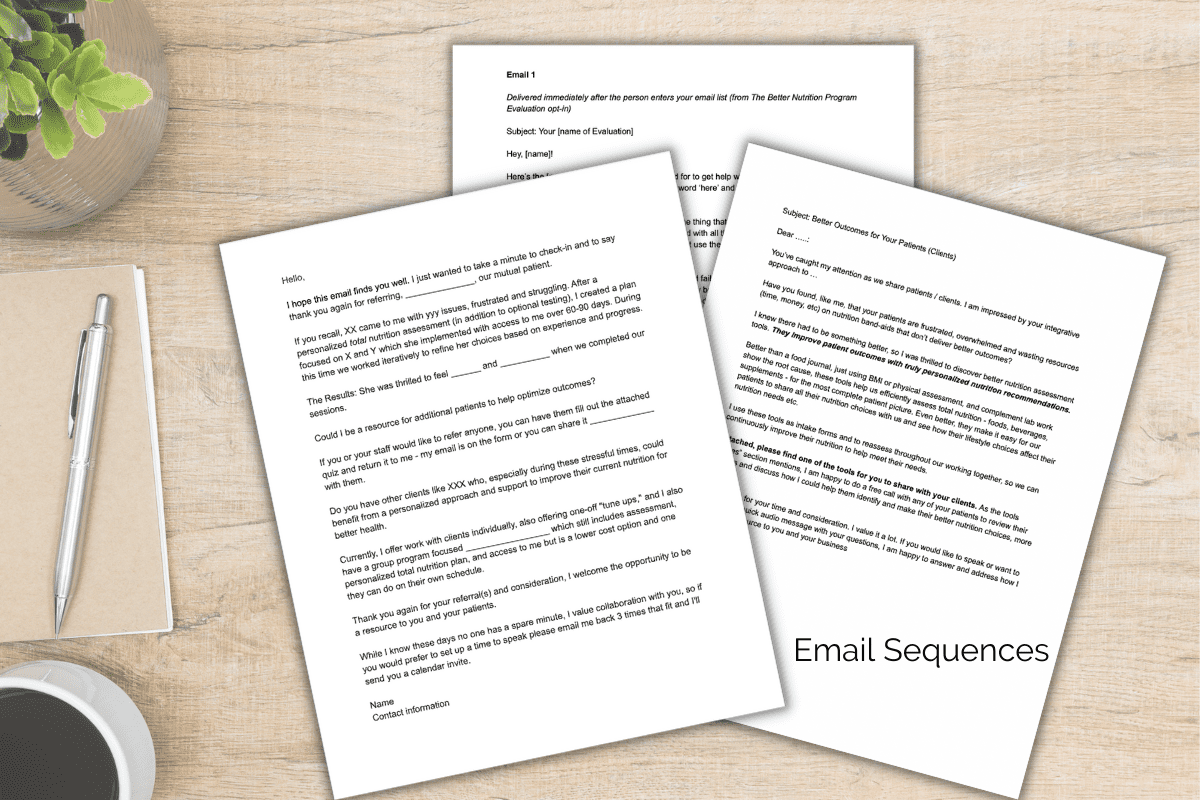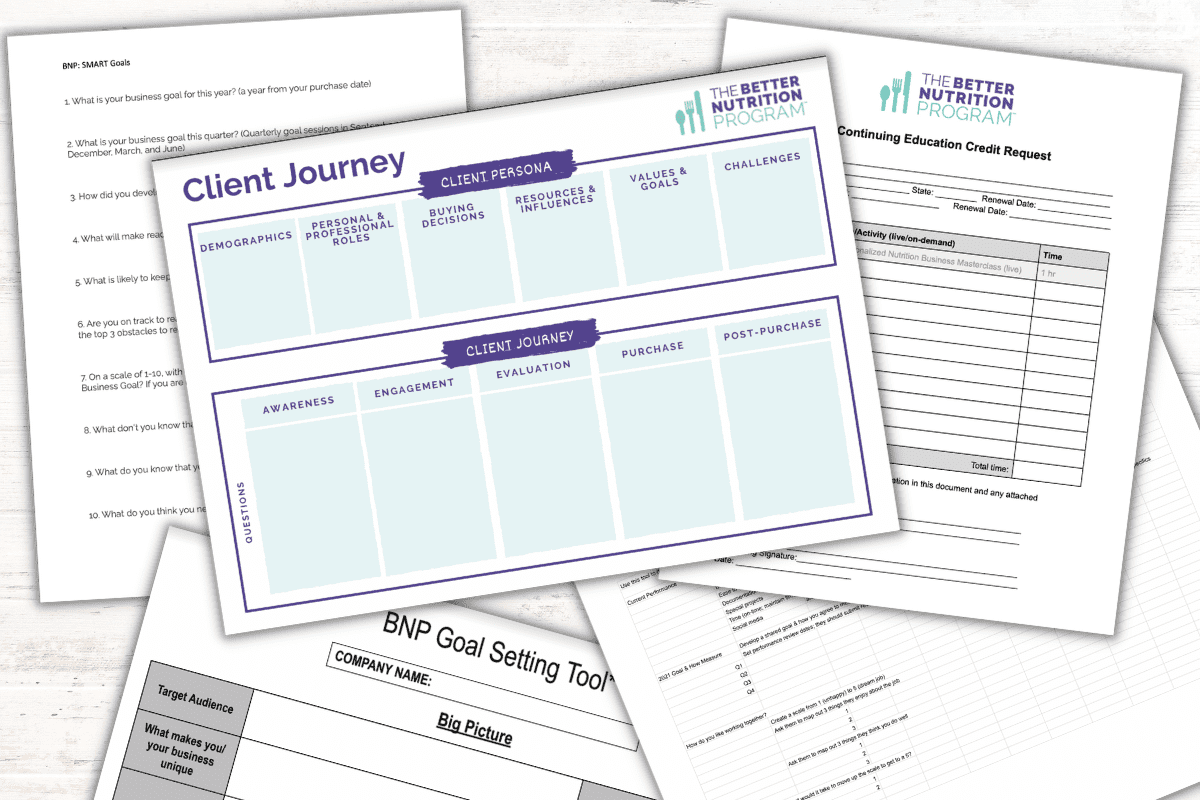How can you get healthy? With a better nutrition assessment.
The thing about better health is that it’s personal.
The thing about most diets and programs and books is that they are not.
To get and stay healthy, you need a personalized nutrition plan. And to get personal, you need to assess your current total nutrition, lifestyle preferences, current health, and your health history.
At The Better Nutrition Program, we make it easy for you and your practitioner to develop your personalized nutrition plan using quick quizzes, menus, and guides.
Now, I know what you are thinking. That sounds like a lot of work. Can’t they just look at my bloodwork or my DNA test and tell me what I need to eat?
No and no. Our quizzes (aka BNP evaluations) are easy and quick to fill out. Labs only tell you about what your blood currently has. They don’t tell you what the cells in your body need or why a number is too high or too low. Your DNA tells us part of your picture, including what form of nutrients or how much your body may do better with more often.
When you and your practitioner use BNP evaluations & tools, you get to the root cause of your health issues and can develop truly personalized plans to help you meet your needs.
Is my story like yours ?
I tried to get healthy for a decade. My belly never felt great, and that discomfort was always there. So I tried everything I could read (in those days there was no Google – I guess in some ways, I was lucky 😉 ) and spent hours and dollars in appointments and on programs. Lab work, BMI, biometrics, allergy testing, none of these helped my practitioners help me figure out what my body needed. I removed foods and added supplements, gave up drinking and added yoga. At times I felt ok, but never truly healthy.
I got healthy with a better nutrition assessment. For a decade, no one asked me about what was going in and on my body most often then, nor in my past. Then I met an integrative gastroenterologist who asked me the questions in our better digestive assessment. Turns out my gut needed repair and my food choices were actually great. After doing a Digestive Tune up (ask your practitioner about this program!), my belly got better and I never looked back. I enrolled in NYU to become a dietitian and took additional courses to learn about integrative and functional nutrition. But it was my asking questions – which then became quizzes – that helped me lead thousands of patients to better health powered by personalized nutrition.
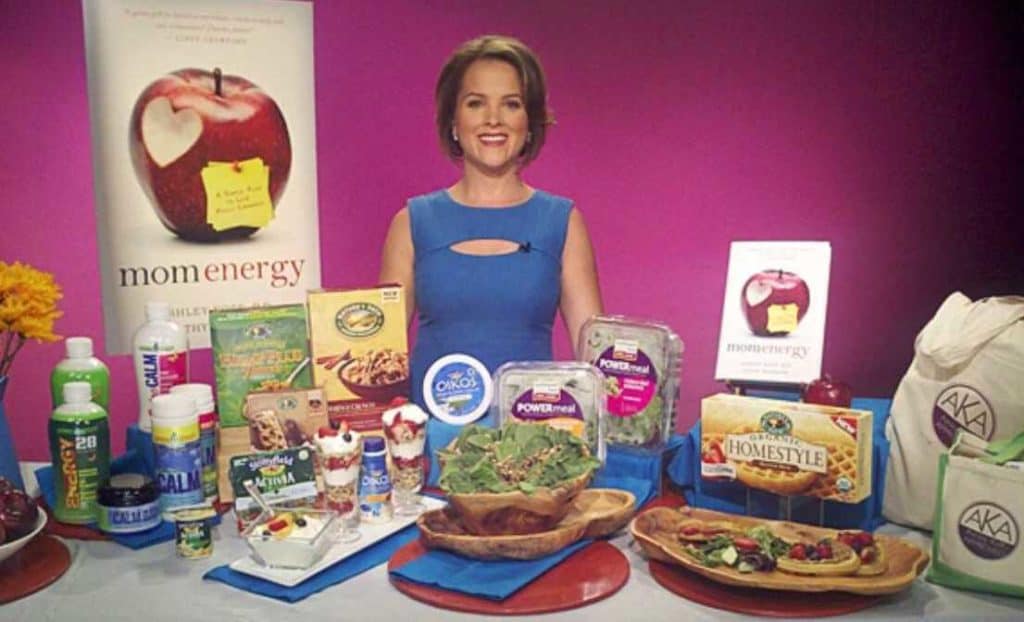
Did you know research tells us that Body Mass Index (BMI) isn’t a better nutrition assessment?
Body Mass Index (BMI) measures weight for height, but not health. Look at the research findings on the link between BMI and several other health markers, including blood pressure, glucose, and cholesterol, and triglyceride levels.
Findings:
Nearly half of individuals who are considered overweight (1) by way of BMI were actually metabolically healthy, as were 19 million people with a BMI associated with obesity.
30% individuals in the normal or healthy BMI range were metabolically unhealthy (2).
BMI as a proxy for health has led to nearly 75 million U.S. adults being misclassified as metabolically unhealthy or healthy (3).
Did you know that labs tell you what is in your blood but not what is in the rest of your cells?
Magnesium needs to be in our blood or your heart can’t function. But it also belongs in your muscle cells and bone tissue to keep all of those healthy. Typical blood work does not look at magnesium unless you are in the hospital because it only tells us about 1% of your total body magnesium. Unless you assess food, drinks, supplements, creams, medications, and lifestyle factors, you can’t know if a body is getting enough magnesium.
YOU. CAN. NOT. KNOW.
And that means you don’t know if that body has what it needs to turn off stress more often.
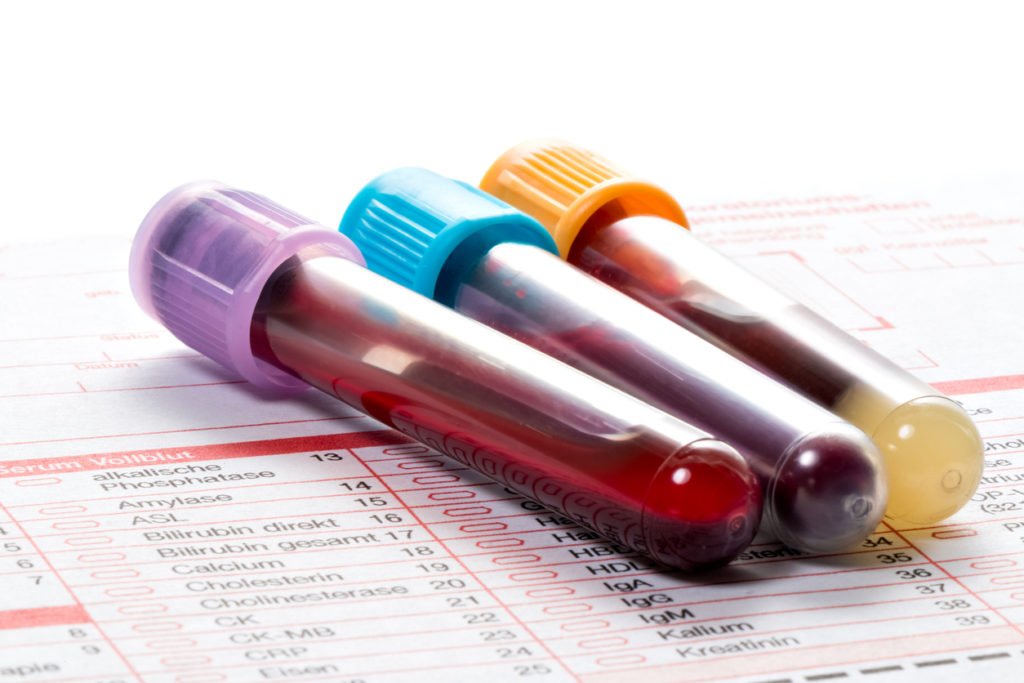
Are genetic testing and nutrigenomics better nutrition assessments?
No and yes. They don’t tell you if someone’s total nutrition is giving a body enough of the nutrients it needs to run better daily. However, they do help you figure out what foods you need, what nutrient forms might be better, and what lifestyle choices may improve your overall health. Learn more about culinary genomics from Amanda Archibald, RD, in this interview (4).
How can you do better nutrition assessments?
It begins with understanding the definition of better nutrition. Better total nutrition, specifically. The reason that existing nutrition assessments don’t work is because they aren’t based off of better nutrition.
Why is the current definition of nutrition not better?
Well-intentioned but not totally accurate, the global nutrition definitions don’t reflect how nutrients or nutrition impacts personal health today. Over 70% of US adults take supplements, while skincare, beauty products, oral and topical medications as well as cleaning supplies all give the body nutrients. Total nutritions looks at the nutrients and ingredients that challenge the body impacts its health.

What is the definition of better nutrition?
What needs to be in a better nutrition assessment?
A better nutrition assessment must include a review of a person’s total nutrition. This includes all the ways their body gets nutrients and any ingredients that could be interfering with its functioning. Additionally, it should include the other results that other tools can provide, depending on the scope of the provider. This would include lab values (blood, urine, stool, saliva), biometrics, etc.
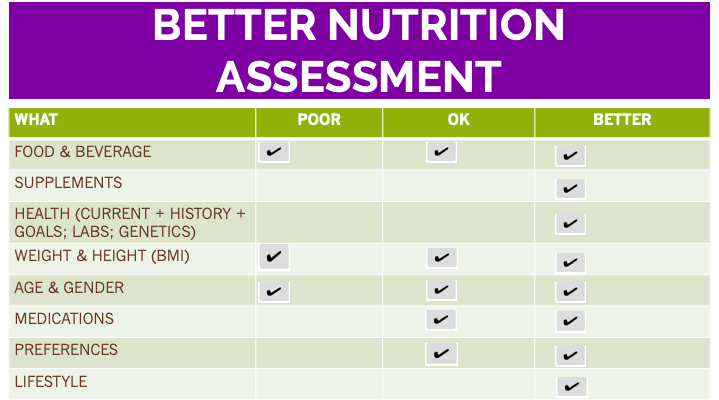
How can a better nutrition assessment work?
Conducting a better nutrition assessment allows a practitioner and their patients to collaborate to get all the information about what currently impacts their health. Using tools like better nutrition evaluations along with other tools biometrics, BMI, lab tests) will ensure a clear understanding of the role that a person’s current total nutrition is playing in their current health. That helps both practitioner and patient see what is working and what could be better. A better nutrition plan keeps what is working and build on it by addressing what needs attention.
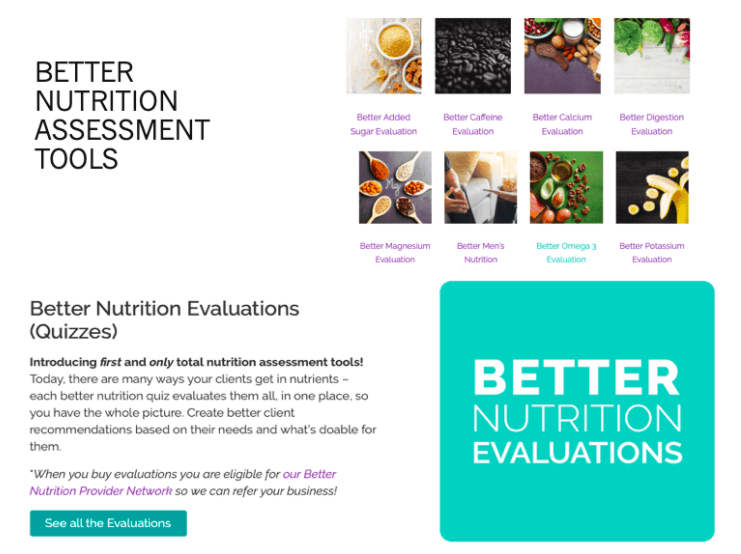
Your assessments should be specific and answer questions:
- Do you need better carbs?
- Is a lack of magnesium causing a problem?
- Does your body get enough iron?
- Which supplements can help?
- Is inflammation playing a role in your health issues?
- Are you getting the best digestive support?
- Is your diet contributing to stress?
- Can your acne be eliminated through diet?
- What if your seasonal allergies could be cured by eating certain foods?
Only a better nutrition assessment can tell you!
REFERENCES
(1) Olson, Samantha. Epigenetics And Obesity: Study Suggests We May Be Able To Alter Genetic Risk Factors. Medical Daily Website. Published Jan 2016. Accessed Jan 2021.
(2) Scutti, Susan. Despite Lower Average BMI, Asian-Americans Highly Susceptible To Diabetes And Often Go Undiagnosed. Medical Daily Website. Published Sept 2015. Accessed Jan 2021.
(3) Olson, Samantha. Teens With ‘Normal Weight’ Have Eating Disorders, Too: How BMI Fails Them. Medical Daily Website. Published Aug 2014. Accessed Jan 2021.
(4) Archibald, Amanda, RD. What is better to eat for your genes! BNP Youtube Channel. Published Jan 2019. Accessed Jan 2021.
(5) World Health Organization. Nutrition. WHO Website. Accessed Jan 2021.
